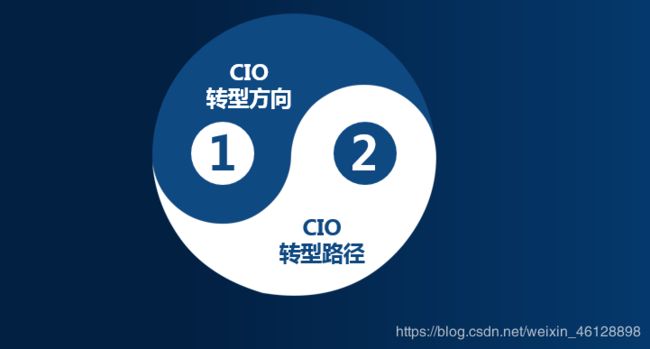IT30:30岁IT男未来10年规划第1篇(2009-2020)
致敬曾经热血沸腾的ERP100壹佰网
火贴之:职业规划大探讨:30岁的IT人对未来5年10年规划(1)
(2009.2—2013.8)
题记说明
1、 背景:此文是2009春节时在HK公司有感而发,当年在ERP100上此贴甚火,经历5年,共550人回复。当年Frank是IT Manager。主要是写:30岁的IT经理接下来何去何从呢?接下来怎么走?当年就有焦虑感,不安全感,现在想起:有规划的人生叫做蓝图,无规划的人生叫做流浪。
2、 定位:30岁左右IT主管,IT经理在35岁,40岁时发展方向的思考,以下每一分隔线为每一位兄弟的精彩回复,今天将当年此贴中精华的部分贴上来,再次回顾。排名不分先后,是按当年贴子楼层进行,近44826字共78页,需要花点时间来看看。
3、 今天感想:一个贴子能火5年说明什么?其实只要是好的有干货了,经典会永流传,实力铸就王者。
2009.2年时Frank发出来主题:
刚和一个朋友 聊到了很久,看了博客,2008年的经济危机,2009的行情不好,等,加上IT这个特殊的行业,其实很早之前就想到了35IT人士能做什么,或是该做什么,但一直没有一个固定的想法,这里和大家共同探讨一下了:
1、30岁而立,是HK一家公司的IT MANAGER,当然可能有跟计算机相关的都会吧,特长:财务成本核算/ERP8年的项目实施经验/4年的PMP项目管理经验/全国IT项目经验/8年的企业流程经验/当然的SQL与VB还好。其他的什么PS/WEB应该都会吧,不是专攻。现在主要是在ERP项目与财务成本/企业的生产流程。
2、在南方一所城市,工资不高不低税后1W,刚养家糊口,准备买房!在想:①我们这种IT人员,以后能做什么,都30岁,写程序不太现实,,走ERP顾问,或是PMP顾问,或是现去企业做MANAGER,当也只能IT部门。请问大家在企业还有:40岁左右的IT MANAGER吗,应该很少了吗?这条种走下去Ok??? ②CIO转行做CFO COO,这些难度,但为了以后,只能是这样,或是转型做ERP顾问更现实?
3、有了经验或是资本,以后自己做,但自己做什么了?转行不懂不熟悉,去开个电脑店太多了现在也不好做? 以上是一个30 it manager对未来五年与十年的规划?以后的路应该怎么样?朋友们有好的建议吗?
重点来了:接下来为550楼各位兄弟精华回复
2009年经济形势依然严峻,但也充满机遇,人只有在痛苦的时候才会进行真正的思考。三十而立,楼主给大家提出几个很好的话题,我也就这个话题谈谈一些不太成熟的看法,均属个人意见,呵呵。
1 IT岗位的复合型技能
现在IT技术发展日新月异,IT岗位往往涉及很多新技术,往往需要复合型人才,楼主简介也充分说明了这一点,楼主知识面非常广泛,使我们学习榜样,同时肯定也有不少职业感悟,因此诚挚邀请楼主参加ERP100人物活动, 参与方式:http://bbs.erp100.com/thread-18025-1-1.html
2 关于IT Manager与CIO
① 以自己所接触的人来看,IT Manager年龄40多的也是有不少的,IT行业也有很多大龄的从业者,这些人往往具有丰富的工作经验与专业技能。 工程师—> IT经理 —> CIO—>。。。的职业路线图上大龄从业者也占不少。
② CIO转行做CEO、CFO 、COO的难度一般的确比较大,主要可能是职位的知识结构差异较大,当然也要看每个人的机遇了,什么事情都是有可能的。一般来说,在目前的企业管理体系下,IT部门基本上是被划归到业务支持部门的范畴,很难与被归入企业核心部门的销售、制造、营销和客服等部门一争高下,大多数老板心目中最重要的企业资源永远是人财物,虽然也在逐步认识到“信息”也是关键资产,但能够真正认识并重视信息资产的相对少很多,总体上,中国CIO的地位稍微有些尴尬,仍然有些不稳定性。
3 关于创业。
经验积累到一定程度,有合适的机遇的话,创业往往更带来更大的成长空间,但往往风险也较大。高风险,高收益。通常创业成功的人不会超过1%。我觉得工作这么多年后开纯粹电脑店的可能不是很好的发展方向,除非能够在这块相当成熟的市场中找到比较好的商业模式,现在想像联想那样,缔造从一家电脑店,经历多年发展而今成为多元化跨国企业集团的神话则非常困难了,社会背景和经济发展背景均不一样了。
多个创业传奇都告诉我们:创业必须有很强的承受挫折的能力,能忍常人所不能忍,有眼光,有胆量,有魄力,有胸怀,而且也要有坚韧不拔的毅力。如果我们的状态是属于一种职业停滞状态,建议重新思考人生的意义。也有很多人一直都在做职业经理人,也做得非常成功,关键在于我们工作与生活的开心快乐。
这是一个很有意思的话题,也许是每个人都必须去面对的话题。
在致所有初学者的帖子中,我写到了我的一些经历,我的基本职业生涯就是:ERP技术顾问-》ERP功能顾问-》ERP主管-》下一步。。。
我现在担任的是ERP部门的主管,那么下一步该如何走呢?我也没有太想好。
我想除开BOB提及的路(工程师—> IT经理 —> CIO—>。。。),我想也许还有另外一条路就是:工程师—》IT经理(兼顾业务)—》经过深造-》企业管理层。
我提及的另外一条路,也许不那么好走,但是我想,可能具有更多的保险系数,因为这个过程需要自己不断的学习以及深造,学习和深造有很多途径,比如参加一些MBA的课程,如此等等。学习和深造本来就是提升自己的一种有效的手段,这种优势是属于自己的。也给自己更多的自信。
在此抛砖引玉。
如果我们的状态是属于一种职业停滞状态,建议重新思考人生的意义。
老人出书做课件是最棒的了,付出3.5年的。
学习了,个人建议还是要结合自己的性格和特长,有管理能力的转型到CEO并不是不可能
是该好好考虑了,建议你总结你前期的工作经验,形成自己特色的实施、管理等经验,并完善知识体系。。。。。
工程师—》IT经理(兼顾业务)—》经过深造-》企业管理层
工程师—> IT经理 —> CIO—>。。。
按照我的理解:楼主应该适合第二个,这么多年你也是这样走下来的。第一个其实我觉得不需要是什么完全的工程师,你的技术只是一个踏板,在和老板的接触中被认可的过程。
至于电脑店:那是浪费你的才华,呵呵。
还有一条路…可以去做培训,育人…一个有着丰富项目经验的老师绝对是个优秀的老师…
培训,不错,即能给人充电,也能带来商机,还能让自己体验不同职业生崖
可能中国人受了30而立的影响比较多,我觉得现在社会的节奏,30岁你可以想你自己还年轻,有好多的机遇和挑战,不要把自己放在一个固定的模式里面去思考问题,眼界大一些,勇于接触各式各样的世界,各式各样的知识,路可以一步一步走出来~~
下面是以前我看到的一篇文章,可以作为参考,我觉得用公司的职位来规划自己也可以,但是不要局限于此.
The Seven Action Logics (zz)
Firstly I’d really like to take the chance congratulate Xenor’s successfully running away from all of us old buddies and found himself a better place for the time being. Heard of the bear joke millions of times yet still couldn’t get to see it even once, except the reason and passion of change, has never changed.
In life here are status quo - something to compare everything to, in life there are restless minds - committed to figure things out differently beyond status quo. Just wanna wish you all the best on the road of your TRANSFORMATION from Opportunist to Alchemist, and wish the brunch you own me could be repayed soon as well, hiahia…
This is a powerful, well researched methodology that has discovered a strong link between individual performance and what David Rooke and William Torbert refer to as “Action Logics”.
For a more detailed explanation you can read papers on the subject by David Rooke and William Torbert. A shorter summary is provided below. The seven logics (originally 9) are:
Opportunist - focuses on own immediate needs and opportunities. Seeks short-term advantage.
Diplomat - seeks approval through socially expected behaviour. Seeks conformity, belonging and pleasant low stress relationships.
Expert - believes in the ‘right way’ to do things, seeking to display own skills and expertise, follows procedures and behaves as expected. Admires efficiency, consistency, incremental improvement and perfection.
Achiever - seeks effectiveness through logical application of objectives, plans, controls, delivers results and goals to secure success within the system.
Individualist - enjoys being appreciated for own uniqueness, working through diverse relationships, experimenting with own power, developing increased sponteneity and pursuing new ideas.
Strategist - sees the world as a dynamic of inter-related processes and relationships - plays many roles in these. Sees big picture and holds long-term perspective. Values integrity, principles and freedom in creating positive change.
Alchemist - committed to transformation of self, organisations and society. Seeks common good. Enjoys interplay of purposes, actions and results. Is illusive, chameleon-like and powerful.
The research discovered that three types of leaders (Opportunists, Diplomats and Experts) were associated with low levels of performance and accnted for 55% of the sample. They were less effective at introducing change strategies than 30% of the sample who measured as achievers. Only 15% of the sample fell into the categories if Individualist, Strategist and Alchemist.
The research recognises, though believes it to statistically small, that environmental conditions influence the way leaders apply their preferred “action logic”. If the culture values experts, then that is the action logic that is likely to dominate - even the work of natural strategists.
The Seven Action Logics
The Opportunist tends to focus on winning, seeing the world and other people as opportunities to be exploited. How they react to events depends on the extent to which they feel they can control them. They treat other people as objects or cogs in their machine. They reject feedback, externalise blame and retaliate harshly. They just think they are being “open and honest”. Constant fighting and rule breaking make them impossible to work for for long, yet they can survive in a culture that values control and compliance.
The Diplomat is less aggrresive than the optimist but they still generate negative repercussions. They seek to please higher status colleagues to avoid conflict and stay in control of themselves, cooperating with the norms and rules to provide the social glue and ensure that due attention is paid to the needs of colleagues. Such behaviour is valued at supervisory levels as they tend to be over polite and friendly. Fearing conflict they resist change - even to the point of self-destruction. They find it difficult to deal with staff who are not performing.
The Expert represents the largest category and account for narly 40% of all professionals. They effect control by perfecting their knoweldge in their work and personal lives. Things need to be done properly and they prefer hard data and logic to get buy-in from others. Experts are valued because they pursue continuous improvement, efficiency and excellence. They view collaboration as a waste of time and treat lesser experts with contempt. Having emotional intelligence is neither admired nor appreciated.
The Achiever will both challenge and support others and want to create a positive team and good relationships wity other functions and service partners. They focus their efforts on solutions and what they can deliver within the confines of their brief and resources - they find it difficult to think creatively ‘oustide the box’. Achievers display a more complex and intgrated understanding of the world around them. They are open to feedback and appreciate that most conflicts are due to differences in interpretation and ways of relating and require sensitivity and the ability to influence others in positive ways. Achievers also tend to delegate more responsibly and achieved significantly higher levels of performance from their staff that those in the previous three action logics. As a result they don’t always get on well with experts who want to “stop change” happening.
The Individualist recognises that all action logics are constructions of oneself and the world. They understand the conflict that arises between their principles and their actions. It becomes a source of tension, creativity and a growing desire for further development. Individuals tend to get results by ignoring rules that they regard as irrelevant, which makes them a source of irritation to both colleagues and bosses.
The Strategist accounts for only 4% of leaders. What sets them apart from Individualiosts is their focus on organisational constraints and perceptions, which they discuss as transformable. They can create shared visions with colleagues who have different action logics. Strategists seem to deal with conflict more comfortably because they handle people’s instintive resistance to change. They are also concerned with personal relationships, organisational relations and national developments - they are socially conscious.
The Alchemist has the ability to renew or even reinvent themselves and their organisation in significant ways. They can deal with many situations at multiple levels because they can talk comfortably with both kings and commoners. Alchemists never lose sight of long-term goals when dealing with immediate priorities. They are often charismatic and live by high moral standards, able to talk to people’s hearts and minds.
这是《论语•为政》中孔子对于自己在30岁时所达到人生状态的自我评价。原文是“吾十有五,而志于学。三十而立,四十而不惑,五十而知天命,六十而耳顺,七十而从心所欲。不逾矩”。虽然不是人人都能做孔圣人,但后人往往把孔子的这些自我评语作为人生不同阶段所应达到的生活理想状态。
对于“三十而立”这句评语,后人给出的解释有很多,比较受认同的说法是“30岁人应该能依靠自己的本领独立承担自己应承受的责任,并已经确定自己的人生目标与发展方向”。简单一句话,30岁,人应该能坦然地面对一切困难了。
我的梦想是做CIo,所以现在恶补ERP的开发技术、财务知识以及企业管理的知识。但当做了CIo之后做什么呢?我还没有想过。或者当赚够家用后,去做培训老师也不错。到时再想。
1、非常感谢各位朋友的回复,我也申请参加了ERP100
2、其实只是个人的经历与大家分享一下。我2000年南下,其实出来后一直比较幸运,8年我只待过两家大型复合企业,一家一呆就是四年,行业涉及到电子/五金/模真/塑胶/制衣/等行业。在MIS部呆了两年,后来去财务呆了一段时间,学习财务,后来被下放到仓库/QC/生管等各部门都学习一段时间,所以对企业流程熟悉,对ERP中的BOM与MRP/等有太多的要说了。。。后来主导神码ERP上线/SAP B1,与财务金碟的K3等,一系列含我们自己开发的ERP系统。其实不是什么ERP,应该是MRP/MRP2之间吧。。。ERP行业国内外我应该都接触过,善长后台的SQL与VIEW到REPORT并形成BOSS需要的甘特图/柏拉图。不聊ERP,累!
3、也比较感兴趣的是BI/CRM/SRM等,对OA/KPI/QC/ISO等或多或少也会吧,,,计算机方面就不说,涉及得比较广,只提一点,当年做ERP累时,想转行去做PRO-E/UG,最后还是留下来了。。。
4、其实做到今天这个位置也不容易,也辛苦也努力,成家了,立业谈不上,现在肩上压力大,上有老,下有小,回老家不现实,所以头大了。。。当然也我也知道比我成功,或是比我们差一点点的人也有,,,,每个人都有自己的生存方式,生活目标,追求不同。所以人太累。
5、我们北京招一IT,65人面试。一个山东父亲打电话给我让我给其儿子一个机会,,,我无语。。。
6、开电脑店,可能有压力是不成功,也不是不体面不好看,但做CIO这个位置何尝又不累呀。。。。人呀是做一行埋怨一行呀。。。
7、我会经常给你定目标,短期与长期了,当我选择OK之后,就会不顾一定朝这个方面努力,当年25时定CIO,30岁时我做到了,现在要定35/40目标时我糊涂了,,,我一个同学在格力去巴西工作三年,年薪也只有rmb15w,不多,,,不知未来的路要怎么选择。
8、我曾经是老师,做过半年了,,不算正式了,做老师是一条路,可以考虑,或是出书写点什么,,,以前有博客,现在很少去写了。。。改天OK之后,再跟大家分享了。。。。
说了很多,朋友,加油,努力,一定成功,这是我的座右铭!
我现在担任的是ERP部门的主管,那么下一步该如何走呢?我也没有太想好。
我想除开BOB提及的路(工程师—> IT经理 —> CIO—>。。。),我想也许还有另外一条路就是:工程师—》IT经理(兼顾业务)—》经过深造-》企业管理层。
我很赞同四海这个思路,
有很多资深的IT工程师或者IT经理,ERP负责人后来荣升为管理 公司 分销、供应链、财务管理等部门的副总 老总。。。。
这个一个看机缘,更重要的一个是要靠平常有意的去不断积累和持续学习和与同类人交流深造…
机会还是有的,也并不是所虚无缥缈的。起码一职业经理人还是有希望的,起码有个合适的位置 ,可以畅想自己的梦想和规划把,需要那么一个平台,努力加油吧。
五年十年二十年后的事情 谁也说不清楚。
你不敢想,就说明你根本就做不到,如果你敢想并敢脚踏实地的做的话,假以时日。
我想我们的ERP100肯定会出现好几位公司的事业部老总 掌管公司核心业务的老总 一方诸侯的。
其实再要做到COO/CEO/CFO,又有怎么样??如果做到的更高,就必须speak english,或是MBA,最好是海归,这样可能更好,但不是每个人都能,要就看自己做怎么,怎么选择。。。。
其实有的时候在想,能到金领又能怎么样,,,人追求的是。。。品位档次成就,,,有点累,不说,感觉跑题,,,,,人反而是做得越高越累,没有以前开心了,,,是为了生存而工作,不是为了工作而工作,这又是另一个层次面的上问题,不关职业规划的问题。。。。。
说远了,朋友们,见谅了,还是打起精神,好好工作,想太多也没有用。。。
个人观点:
1.首先是对于工作的认识
工作除了是我们求生的需要外,还同样可以发展我们的兴趣爱好,但工作都是一样的,只要用心去做,都是可以很出色的,程序员与CIO都一样,只要乐得其所,工作也同样存在着一些差别,能做的了技术员的不一定能做的了CIO,因为他们的关注点与思考问题的方式不一样的
2.所处环境对工作选择的影响
生活是可以享受的,也是可以选择辛劳的,追求高品质的生活,方式是不一样的,并不是只有一条路可走;每一阶段的驻足也会发现别外的风景,得失之间的平衡不需要太在意
3.结合自己的实际情况
在选择一个工作前,要首先认清自己的现状,优势与劣势,工作方向,家庭现状、生活习惯等等,当然周密的考虑不一定是踌躇不前的理由
随波逐流的人一般只有两种原因:一种是认同目前流行的职位走向,一种是找不到自己的工作目标,如果你也找不到自己的定位,那么随意趋势走也不失为一个好的法子
很多朋友都喜欢为自己定一个目标,我也包含其中,但目标计划越长远,所存在的变数就越大,不可预料的情况也就越多,也就会产生与预期更大的误差,所以目标的长远结合自己的情况适度即可,当遇到新的机会时要慎重选择
答案就自己找吧.
生活是可以享受的,也是可以选择辛劳的,追求高品质的生活,方式是不一样的,并不是只有一条路可走;每一阶段的驻足也会发现别外的风景,得失之间的平衡不需要太在意--------这个我同意,我也找,也在调整,曾经是足球爱好者,现在空余时间用来钓鱼,来洗涤自己。。。。。
在选择一个工作前,要首先认清自己的现状,优势与劣势,工作方向,家庭现状、生活习惯等等,当然周密的考虑不一定是踌躇不前的理由---------对呀,人走到一个位置,另一种层次,需要时间来积累,来融化。。。。
其实也只是自己说来出来,心里好过一点,不再迷茫,或是找一个借口,放自己放下来,但那能,,,家庭生活的担子就是这样,相信很多IT人士或是非IT人士都会和我一样,,,,曾经有过这样的困惑,,或是那样困惑。。。。
前年去过武当山道观一天,那天感觉非常奇妙,,,心境,意境。。。。想过去:辟谷,学会让心静下来了,给自己一个总结,一个动力,明天好好了开始。。。。
人活得自在,问心无愧,开心,工作就行,不用想太多,我自己劝自己,,,加油,努力,一定成功。
很震动~一直想的都是找到个好工作,对于以后到了一定年龄面对的瓶颈还从来没想过!建议做一些有意义的事情!用您的经验造福更多的人!
分享。尤其我们互联网这么发达。我们要让我们IT人生首先受益。
看来,人人的人生都有困惑的阶段,估计成功与失败的差别在于是否有走出困惑,并确定目标而坚持下去
很震动~一直想的都是找到个好工作,对于以后到了一定年龄面对的瓶颈还从来没想过!建议做一些有意义的事情!用您的经验造福更多的人! ----------OK,一定会了,等忙过这段时间,我把以前的博客继续写下去,也收集了一些自己多年了小东东,大家共同分享一下,希望能引起共勉。。。因为后天要出差上海/北京,所以这么晚上来看看。建议那些刚出来的朋友们,努力,加油呀。可以像CIO肖利华学习,他的确是一个牛人,强人。一个目标。希望大家都能实现。
看来,人人的人生都有困惑的阶段,估计成功与失败的差别在于是否有走出困惑,并确定目标而坚持下去-----是呀人到了不同的年龄对生活,对家庭,对金钱,对工作的看法又不同,也许当三年或是五年后我再回来,时又一个全新了。。。我有个建议,ERP100这个好论坛,是否可以开一个群,讨论一下CIO/或是ERP,大家共同学习了。。。好了,晚安。GOOD NIGHT
慢慢的去面对,前面的路还有很长。
是的,能走到这步不容易的
工程师—> IT经理 —> CIO—>。。。
ERP技术顾问-》ERP功能顾问-》ERP主管-》。。。
工程师—》IT经理(兼顾业务)—》经过深造-》企业管理层>>
(老人出书做课件,老板)
您的需求已经过了前四级了,关注您的方向,希望您早日恢复平静心情。
做业务的以后自己立门户,作技术的考虑专业做教育。

各位朋友不好意思,今天到上海,好冷,明天要讲课,现在又要全国12大城市推ERP与做财务的成本,,,又要被工作充实着,这样也好,快乐并痛苦着呀。。。。想想外面的经济危机,,,想想自己出差的待遇与参加全球的展会与渡假村的日子。。。。。在寻找一种平衡,一种心态,一种态度,听过N位老总说过:态度决定一切,还是学习,加油,一切向上了。。。
1、做技术的两个方面:一是以后做顾问/老师,老师如果是在学校教的话,不实际,没有实操,ERP这东东要运用到企业的流程与运作才行。。。现在的电脑培训部教的都太理论太表面,我曾与他们PK,,,,最后我无语,有点小调皮了。。。去做顾问是一条路。曾用友/天心找过我。。。但我最后还是没有去,帮过天心做过两个CASE,比较累。。。。还可以自己代理产品,这样最好了,因为自己懂技术又可以学习到业务层面上的东西。。。。而且ERP这个行业的利润。。。。。当续签时这种费用以及顾问师辅导的费用相当可观,如果你自己做业一年有3单,以后每年这三单的维护费就。。。。。哈哈哈。。
2、做IT也好,ERP也好,或是CIO也好,还是多学习各种不同行业的流程与运作,隔行职隔山,,,最好要懂财务与生产这样比较好啊。。。流程单据化,单据电脑化,电脑系统化,系统信息化。我比较认同制度化,SOP化,以及人性化,,,有些度呀,,,无纸办公有些难,,,企业的执行力,一把手工程,BPR等一堆。。。。。
好了,不写了,明天要讲课,有时间上来继续分享经验了。。。。
态度决定一切
在迷茫之中。。。
各位朋友,不好意思,因为开会/讲课/拓展的原因,现在才来跟贴,这次来上海收获不少:
1、TEAM的团结游戏/拓展
2、工作的充实,新的动点。
3、工作得到的认知,认可,这一点很重要,小有成熟感。
4、和三位9年没见的大学同学会见,感概万千,大家上班打工生活养家都不容易。
加油,努力,一定成功!
有同感,但又能如何呢。人生充满无数定数。只今真真认认做好今天。适当考量明天。心态摆正就好。
呵呵,转眼,我也30了。
像楼主一样,也曾经存在对自己未来规划的困惑,但自己这些年来,已经决定自己在IT技术这个方面更适合,而且自己在这方面也有些优势,也有兴趣,算是乐在其中吧。
以后更长的日子里,相信自己还会热爱技术这方面的工作。不求非得到什么样的职位,什么IT Manager,什么CTO。这些并不是自己做不了,只是我觉得自己不能把工作当成生活的全部,还有其他很多事情要我去做。所以,只要工作开心,就好。
都说,中国没有30岁的程序员,但我现在就是一个程序员,在将来,也会是。
耶稣说:“我和你一样,有过孤单,有过软弱,发过怨言,如今我实在告诉你,耶稣爱你,直到永远。”我回答说:“岂能尽如人意 但求无愧于心。”
对于我这种新手,当前的目标就是达到楼主的现状
不过看到上面的回复,有点突然惊醒的感觉 不知道这条路我还能走多远。。。
我都36了,有8年的SAP经验,4年的外部实施经验,SAP PP PA认证,学计算机出身,当然了ABAP、workflow等不在话下,可是现在也是不能稳定下来,不知再过两年是否真到要被淘汰掉了!痛苦啊
我都36了,有8年的SAP经验,4年的外部实施经验,SAP PP PA认证,学计算机出身,当然了ABAP、workflow等不在话下,可是现在也是不能稳定下来,不知再过两年是否真到要被淘汰掉了!痛苦啊。。。。。。
---------强会SAP,很简单,现在大企业都需要,你可以自己出来做,,,因为SAP的贵,你自己有客户你可以自己做维护,我相信企业还是会找你了,不会找SAP了。。。。。我以前有一个朋友就是这样了。也是玩SAP。。
